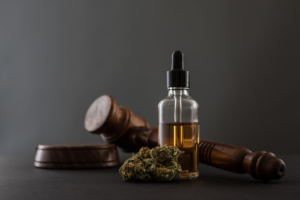
Cannabinoid Therapy & ADHD
“Picture a room with 1,000 TVs with each TV showing something different. Now try and concentrate on just one TV without getting distracted.” –Damian DaViking Aird Attention deficit

“Picture a room with 1,000 TVs with each TV showing something different. Now try and concentrate on just one TV without getting distracted.” –Damian DaViking Aird Attention deficit

On May 14, 2021 a bipartisan bill was introduced in the Colorado House to more strictly regulate high-potency THC products, imposing barriers to access for medical consumers as well as

The cannabis industry is a growing industry and the fastest growing in the United States. Cannabis sales are expected to reach $99 billion in 2022 and projected to reach upwards

Chronic Fatigue Syndrome (CFS) or Myalgic encephalomyelitis (ME) is a debilitating, long-term illness causing severe fatigue and sleep problems. While it is most commonly found in individuals between ages 40

Have you ever been so desperate for your medicine or therapy to work that you place all your eggs in one basket? We all have! You might be thinking, “I

Tobacco use is responsible for more than 480,000 deaths each year in the U.S., according to the CDC, which estimates that it accounts for nearly one of every five deaths

Delta-8 tetrahydrocannabinol (delta-8 THC) has become a growing topic of discussion due to its legal controversy and recently issued warning letters by the FDA. The FDA’s growing concerns stem from

Update 5/11/22 We’re pleased to announce that this new version of the bill, with slight technical amendments, was overwhelmingly passed by the Colorado House and Senate during the final

There is no question that we, as a country, have a moral obligation to build restorative measures for those who have been negatively impacted by the War on Drugs. Black

Maybe, maybe not! It depends on a few different factors so let’s start with what we know. The Problem Explained The idiom, “the cart before the horse,” best
Open the following in new tabs if you:
If you are already a user: Client Login
If you are not, then register: Client Registration
Once Logged in, click below to refresh the page.